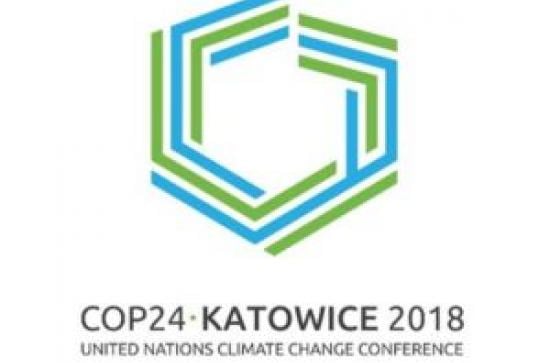
Moving from aspirations to implementation was always going to be a difficult task for countries, as it is for individuals. It is one thing for political leaders to make noble statements about climate leadership and ambition for a domestic or international audience, and quite a different thing when it comes to making hard decisions to turn those aspirations into actions which confront some of their other priorities and pressures. So it was with COP24, which turned into the most fractious Conference of the Parties since the disaster of Copenhagen in 2009. The tone was set early on when 4 countries: USA, Saudi Arabia, Kuwait and Russia united to block the other 193 from welcoming the key scientific report of the Intergovernmental Panel on Climate Change relating to the steps necessary to avoid the world warming by 1.5oC above pre-industrial levels. The report had been commissioned by the COP at the historic Paris meeting in 2015, largely at the request of the Small Island Developing States whose very existence was threatened by a temperature increase above this level. In diplomatic language this rejection amounted to a repudiation of the considered conclusion of the global scientific community, something that had not happened in the 24 years since the United Nations Framework Convention on Climate Change entered into force. The US, Russia and Saudi Arabia are of course the 3 largest oil producers and their stance emboldened other countries such as Brazil to stall progress in other areas.
After almost 2 weeks of negotiations the conference was scheduled to end on Friday afternoon with a Plenary session open to all participants. This was postponed initially for 4 hours, then 4 more, then until the next day. It was clear that the required unanimous agreement was not proving possible to obtain, even after overnight negotiating sessions which were beginning to take their toll on the endurance of delegates. The shared sense of urgency which was apparent in Paris in 2015 had given way to narrower views of national self-interest, some shamelessly advanced by new populist leaders and vested interest groups such as in energy, transport and agriculture. The objectives of achieving a common rule book for eliminating things like double counting and allocating finances was an essential ingredient for the Paris Agreement to become operational by 2020, and stopping ‘wriggle room’ which would hamper its objectives. It was only late of Saturday that the final details were thrashed out and the customary self-congratulation of the platform party could proceed. But with this came mixed conclusions about the efficacy of the two weeks negotiation.
Firstly, a rule book did emerge which applied to all countries. In 133 pages a detailed methodology enabling monitoring, reporting and verification is now part of the global climate architecture. This is to be welcomed and binds countries to making new pledges in 2020. But while the current pledges, even if honoured completely, would still allow the world to warm by over 3oC, the extent to which a new round of voluntary commitments will reduce this below the critical level is questionable.
Secondly, some 27 countries recognised midway through the conference the need to move quicker as recommended by the science, and signed a letter calling for increased ambition over the next two years, both in terms of emission reductions and the provision of financial supports for countries most affected by climate change in the developing world. Among the 27 ‘leaders’ were countries such as Argentina, Canada, Columbia, Finland, France, Italy, Spain, Portugal, Sweden, the Netherlands and the UK. Ireland refused to join this group of leaders, confirming its status as a climate laggard, indeed the worst performing country in the EU for a second year in succession.
Thirdly, the final agreement failed to tie up some loose ends on how the world might trade carbon in the years ahead. This was principally due to the reluctance of Brazil which hoped to cash in on its extensive rainforest cover in a manner that was not acceptable to the other participants. This issue was unresolved a postponed for consideration until next year’s meeting. Brazil had earlier withdrawn its offer to host COP25 and, following its recent elections, had threatened to follow the US out of the Paris Agreement.
Meanwhile, the young people attending the conference had staged a number of demonstrations urging immediate action to halt growing greenhouse gas emissions. Polish school children had gone on strike on the Friday and made their feelings known in the atrium of the conference venue. It seems Sir David Attenburgh’s address and an equally authoritative intervention by a Swedish teenager expressed better what the public feel about the urgency of tackling the climate crisis than do political leaders.
At this stage it must be questioned whether the UNFCCC is ever going to deliver on climate change before the tipping points are reached. The necessity for unanimity among 197 countries represents a huge obstacle enabling the will of the majority to be subverted by powerful minority interests. In the EU this has been addressed by qualified majority voting, and maybe it is time for the UN to consider this as a way of breaking the paralysis. There is also a case for climate considerations to underpin evolution of tariff policies in the World Trade Organisation and maybe it is time to think of radical new ways to tackle the climate emergency. At the moment we are failing the next generation, and we don’t have to look further than Ireland for a demonstration of this.
Article written by Prof John Sweeney
